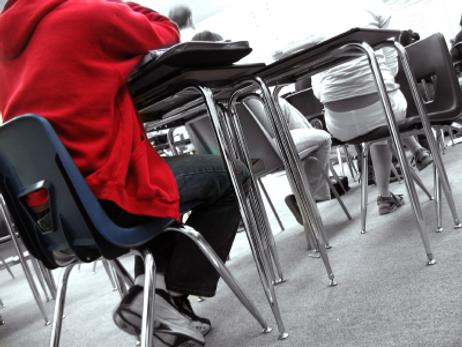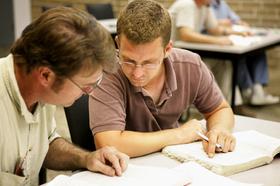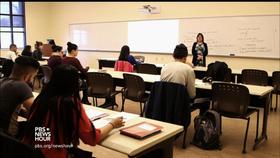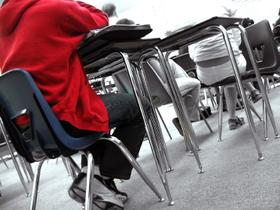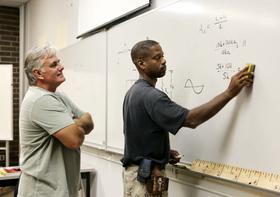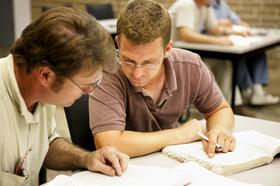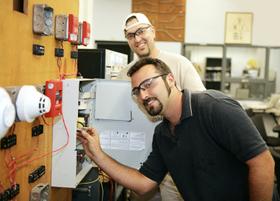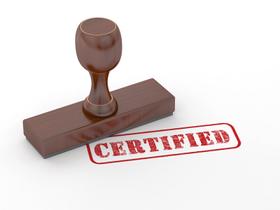Remedial education has become an integral part of the community college experience for many schools across the country. Students who need additional help in the core curricula like reading, writing, and math can get the help they need to succeed in a college program and get a higher-paying job once their degree is complete. However, remedial education is not without its share of controversy in higher education circles. Some question the need for such courses and believe the money spent on remedial education could effectively be allocated elsewhere.
Who Owns the Problem?
The first question regarding remedial education is who owns the problem of high school graduates not being adequately prepared for postsecondary education. Many believe it is the job of high schools to ensure students are college-ready when they graduate. However, a recent report at Inside Higher Ed explains that at this time, a standardized platform for college readiness simply does not exist. The article states, “Because colleges have not clearly articulated the skills that students must possess to be college-ready, students are blindsided when they are placed into remedial courses, and high schools don’t have a clear benchmark for preparing students for success.”
If high schools do not know the college-readiness standards, it can be nearly impossible for them to adequately prepare students for the academic rigors of postsecondary education. While the article's author acknowledges that setting college standards across the country would not be easy, he does assert the process is absolutely necessary if schools are to minimize the need for remedial courses – and make those offered more effective in helping students achieve success. The ACT and SAT have offered up cut scores that could create clear standards because they accurately align with a student’s success in college.
This video explains why community colleges offer remedial courses.
The Prevalence of Remedial Education
Another problem with remedial education is the fact that so many students require remedial courses to become college ready. According to a report at AL.com, more than one-third of all community college students require remedial education when enrolling in community college. In some areas of the state, that percentage increases to anywhere between 50 and 70 percent of the students attending college in their specific community. The article also emphasized that this problem was not limited to Alabama.
Gregory Fitch, the executive director for the Alabama Commission on Higher Education, told AL.com, “This is costing us double. It is impacting our workforce, our competitiveness, our economic development and our future.” Fitch added that a large percentage of students that require remedial education do not qualify for tuition aid and have a low completion rate in college overall.
The Cost of Remedial Education
With so many community college students requiring some sort of remedial education, it is no wonder why many college officials are worried about the cost of such programs. Pima Community College in Arizona is considering the elimination of three of its remedial courses as a part of the budget tightening that schools are experiencing across the country. According to the Arizona Daily Star, the school is planning to eliminate the lowest tier of remedial courses, with classes in math, reading, and writing all on the chopping block. Officials from the school have noted that success rates for students who have taken these particular classes are relatively low.
Concerns over the cost of remedial education are valid in many cases. For example, the Times-Dispatch recently reported that more than half of all Virginia students require some sort of remedial education at a price tag of more than $12 million annually. The numbers came from the Joint Legislation Audit and Review Commission. Can students get the skills they need in high school to succeed in community college without the need for such an expense at the postsecondary level?
The report at Inside Higher Ed acknowledges that remedial education makes up a relatively small portion of the college budget each year for some schools across the country. A study by the Board of Regents in Ohio found that the cost of educating remedial students only came to around 3.6 percent of undergraduate instructional costs in this state, despite nearly 38 percent of all students taking some remedial class work. However, even this small percentage is only cost-effective if the classes help improve college students' success rates.
This video explains how remediation works in community colleges.
Remedial Education Can Work
While there are plenty of complaints about remedial education – and some are well-deserved – there are programs that are truly effective in helping college students succeed. Another report at Inside Higher Ed outlines a new program at a Chicago community college that has the potential to double pass rates at two-year institutions. The program was developed by the Daley College faculty members, along with college president Jose Aybar and vice president Keith McCoy.
The Chicago program, dubbed Comprehensive Academic Support and Help to Return on Investment (or CASH-to-ROI), supplements current remedial coursework with study group sessions of seven to 10 students and one part-time staff member. The students who participated in the first round of this program had an 80 to 90 percent passing rate versus a 40 percent passing rate for the students that did not participate.
Remedial education may have its share of controversy, but there is no doubt these classes serve a vital purpose for some struggling students. With more colleges taking a look at the necessity and effectiveness of remedial coursework, perhaps these transitional classes will become a more useful tool for college success and completion.
Questions? Contact us on Facebook. @communitycollegereview

